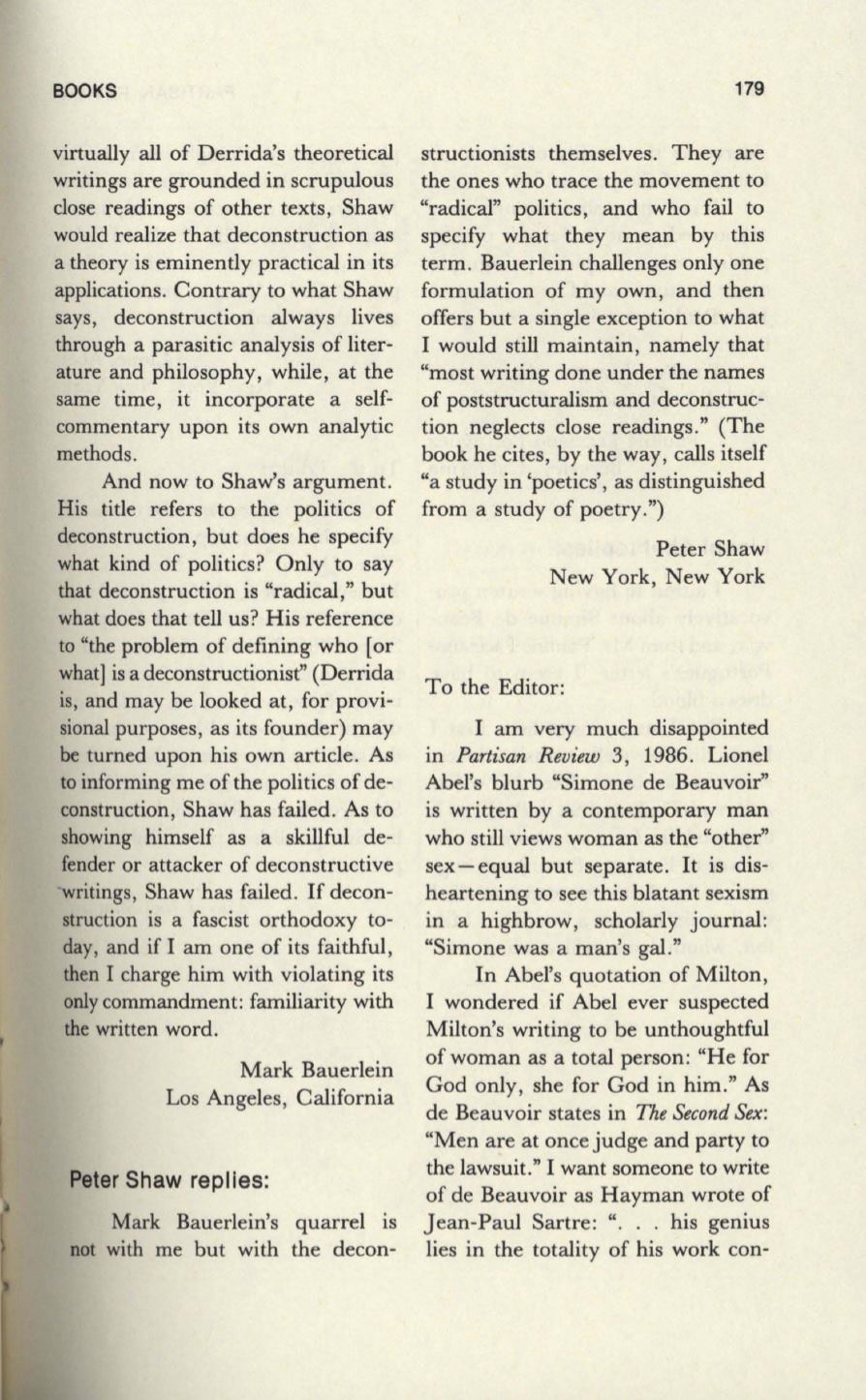
BOOKS
virtually all of Derrida's theoretical
writings are grounded in scrupulous
close readings of other texts , Shaw
would realize that deconstruction as
a theory is eminently practical in its
applications. Contrary to what Shaw
says, deconstruction always lives
through a parasitic analysis of liter–
ature and philosophy, while, at the
same time, it incorporate a self–
commentary upon its own analytic
methods.
And now to Shaw's argument.
His title refers to the politics of
deconstruction, but does he specify
what kind of politics? Only to say
that deconstruction is "radical," but
what does that tell us? His reference
to "the problem of defining who [or
what
1
is a deconstructionist" (Derrida
is, and may be looked at , for provi–
sional purposes, as its founder) may
be
turned upon his own article. As
to informing me of the politics of de–
construction, Shaw has failed. As to
showing himself as a skillful de–
fender or attacker of deconstructive
'writings, Shaw has failed .
If
decon–
struction is a fascist orthodoxy to–
day, and if I am one of its faithful ,
then I charge him with violating its
only commandment: familiarity with
the written word.
Mark Bauerlein
Los Angeles, California
Peter
Shaw replies:
Mark Bauerlein's quarrel is
not with me but with the decon-
179
structionists themselves . They are
the ones who trace the movement to
"radical" politics, and who fail to
specify what they mean by this
term . Bauerlein challenges only one
formulation of my own, and then
offers but a single exception to what
I would still maintain, namely that
"most writing done under the names
of poststructuralism and deconstruc–
tion neglects close readings." (The
book he cites, by the way, calls itself
"a study in 'poetics', as distinguished
from a study of poetry.")
Peter Shaw
New York, New York
To the Editor:
I am very much disappointed
in
Partisan Review
3, 1986. Lionel
Abel's blurb "Simone de Beauvoir"
is written by a contemporary man
who still views woman as the "other"
sex-equal but separate. It is dis–
heartening to see this blatant sexism
in a highbrow, scholarly journal:
"Simone was a man's gal."
In Abel's quotation of Milton,
I wondered if Abel ever suspected
Milton's writing to be unthoughtful
of woman as a total person: "He for
God only, she for God in him." As
de Beauvoir states in
The Second Sex:
"Men are at once judge and party to
the lawsuit." I want someone to write
of de Beauvoir as Hayman wrote of
Jean-Paul Sartre: "... his genius
lies in the totality of his work con-


